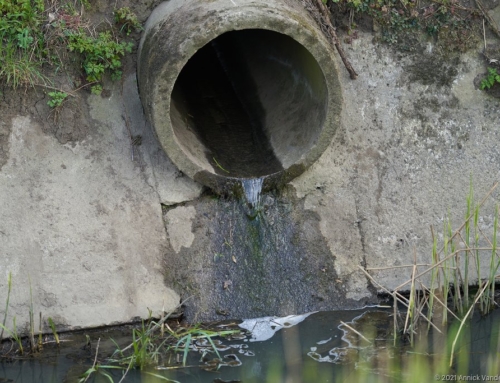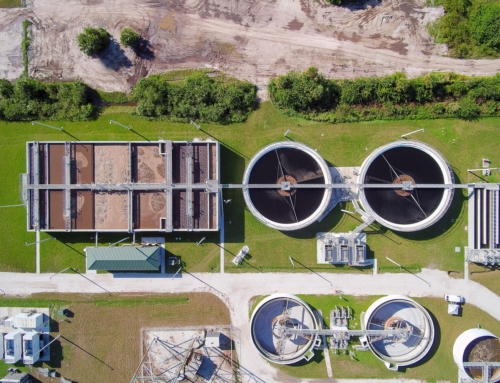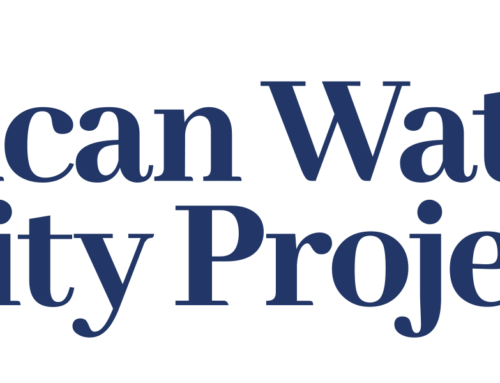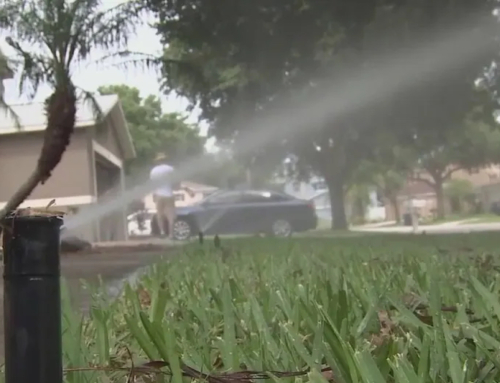|
|
|
|
FOR IMMEDIATE RELEASE |
Contact: Terry Gibson, American Water Security Project |
|
|
Phone: (772) 285-7683 |
|
|
Email: tgibson@awsproject.org |
Statement on Fort Lauderdale’s Sewage System Failures
City has spilled 126.9 million gallons of sewage in the past three weeks
[St Petersburg, Florida, 9 January 2020] — Six major sewer main failures in three weeks have dumped 126.9 million gallons of raw sewage into the City of Fort Lauderdale’s neighborhoods and waterways. At least two residents attribute hospitalizing infections to contact with sewage-contaminated waters. Major fish kills have resulted. And the lives of those who live and work near the spills have been egregiously disrupted.
The residents of Fort Lauderdale demand answers. A commitment to simple infrastructure investments and preventative maintenance can easily prevent repeat sewerage disasters.
Fort Lauderdale’s sewage crisis is the result of past and present City leaders failing to recognize the importance of a maintained wastewater infrastructure. As the City grows and wastewater infrastructure ages, City leaders are failing to make timely, sufficient investments in wastewater infrastructure repairs and improvements. In fact, they repeatedly reallocate taxpayer money intended for the City’s water and sewer operation to the City’s operating budget.
Leadership and voters across Florida should learn from such mistakes, or sewage disasters such as what is occurring in Fort Lauderdale will become common.
Dr. Peter Barile, American Water Security Project (AWSP) Science Director, warns “The threats of wastewater pollution to human health, and to the health of pets and wildlife are very serious.”
AWSP urges Fort Lauderdale residents, workers and visitors to follow the advice in the City’s Sewage Overflow Safety Procedures, and in the Safety Around Wastewater (Sewage) Notice. This advice includes avoiding contact with wastewater, personal hygiene measures such as careful handwashing, and keeping pets and children from drinking contaminated water.
The AWSP team also expresses our profound sympathies to those in the marine industry, including affected fishing guides, boat maintenance professionals, and tour operators. AWSP Executive Director Dr. Brandon Shuler, who spent his youth guiding recreational fishermen laments, “Sewage infrastructure failures typically hit watermen and women the hardest. It’s terrible to have to work in such a polluted environment, and very few other sources of pollution will destroy fisheries and the businesses they support as quickly as sewage pollution.”
AWSP also urges the City to stop gambling with the City’s future economic and environmental health with unsustainable growth and a crumbling wastewater infrastructure. Understanding that increased volumes of wastewater will put even more pressure on the City’s corroding pipes and strained treatment facilities, the City Commission has made slow-growth promises; yet the Commission continues to approve the building of high-rises condos and hotels.
Jennifer Scuteri, an estate planning expert and an AWSP Steering Committee member, who served on a town council in her native state of Massachusetts reminds City Commissioners of their duty to protect property values.
“Most people that move to Florida put much or all of their nest eggs in homes and businesses. When you allow more growth than aging wastewater infrastructure can handle, and sea-level rise and other climate-induced flooding compound your pollution problems, you severely jeopardize the financial security of your citizens and their families.”
AWSP is encouraged by Mayor Dean Trantalis’s promise for a comprehensive wastewater/stormwater plan. But many unfulfilled promises from elected officials with sewage problems have been heard before, and like so many cities across the State, the City of Fort Lauderdale has repeatedly failed to act decisively. Public confidence is understandably low.
“Before the City of Fort Lauderdale takes on the costs of urban services for new, high-impact development, it must adopt an aggressive, technically sound, and well-funded plan to provide its citizens with modern sanitation services,” says Terry Gibson, AWSP Government Affairs Director. “We encourage the City to plan for the future as they explore the number of funding mechanisms available to fix the problem, reduce the financial burden on utilities customers, and keep the City solvent.”
Sewage pollution is a significant problem throughout Florida, and for many municipalities around the country. AWSP challenges leaders nationwide to acknowledge the sewage catastrophe unfolding in Fort Lauderdale and ask themselves, “How would I manage our water infrastructure investments here today, if I want my grandkids—would-be landowners, future business owners, and local taxpayers—to be able to live here in 40 years?”
Action is needed now.
The American Water Security Project is a coalition of business leaders, scientists, engineers, policy experts, outdoor enthusiasts, conservation advocates, and thought leaders working to promote the urgent need for wastewater infrastructure upgrades to protect waters and water bodies around the country. The American Water Security Project is a registered 501(c)3. www.awsproject.org.
###





